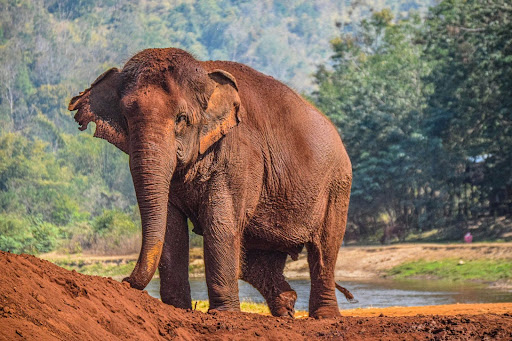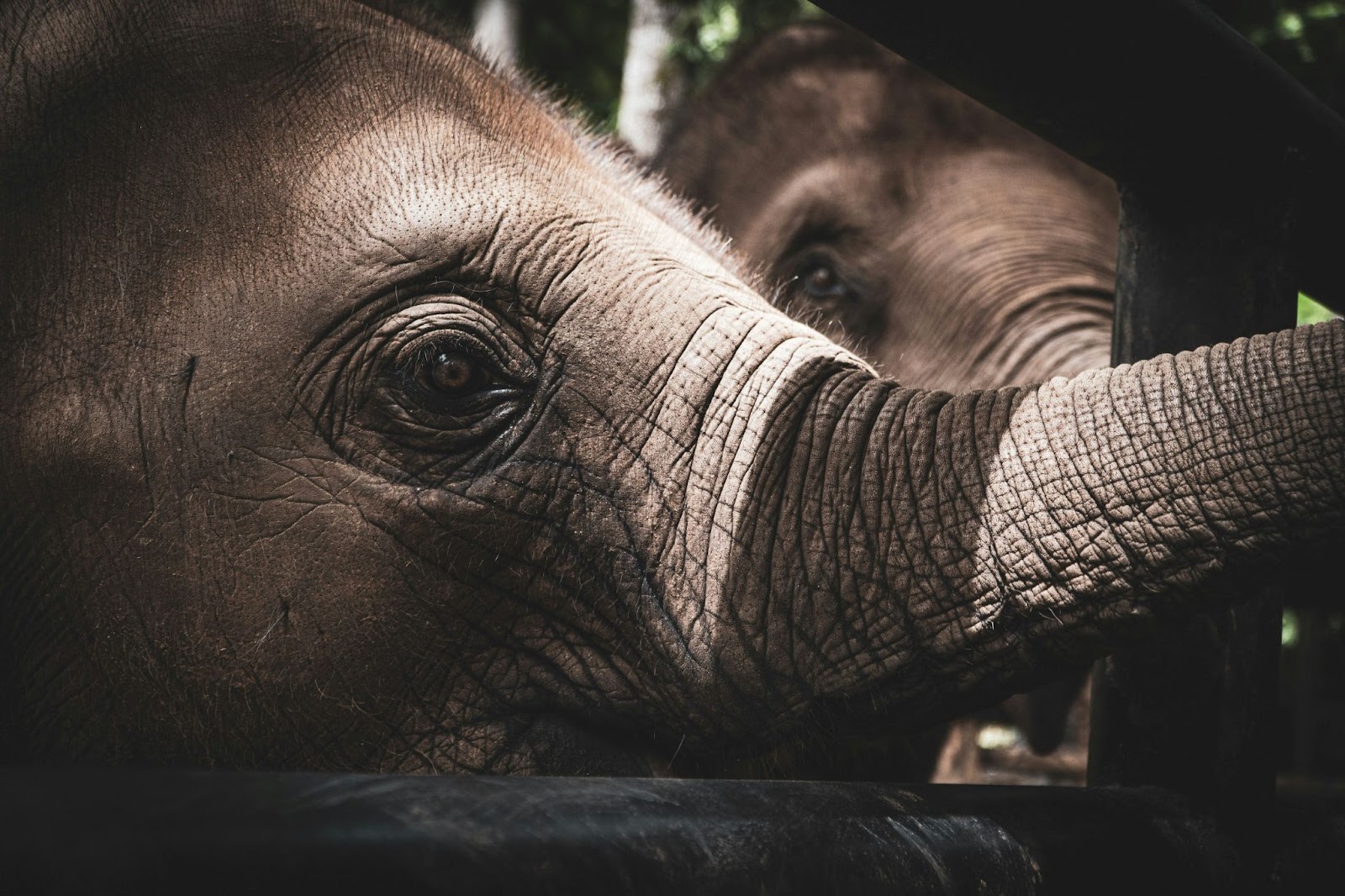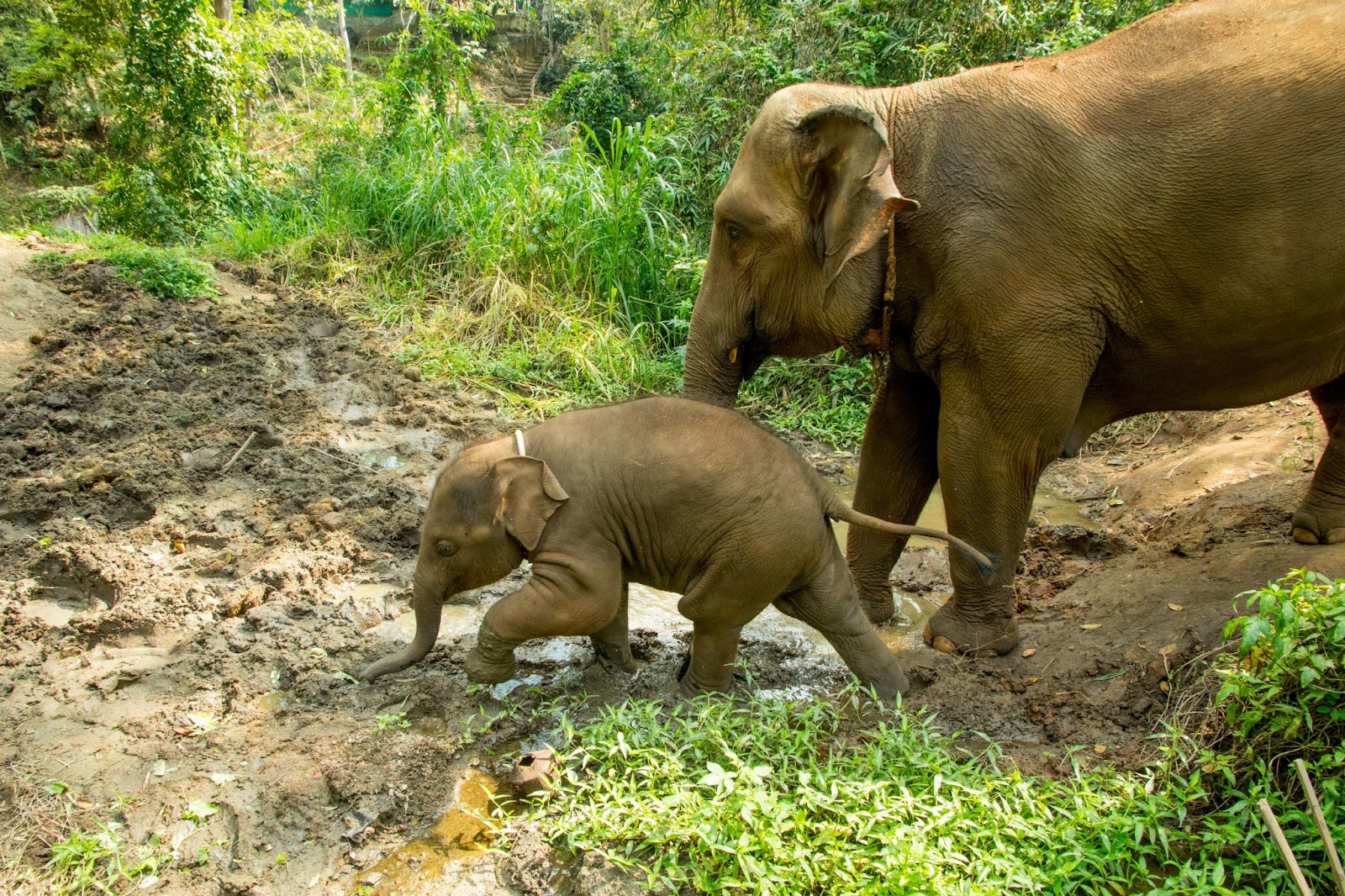A Day In The Life At An Elephant Sanctuary: What To Expect
These sanctuaries play a crucial role in the conservation of elephants, many of which have been rescued from harsh conditions such as logging camps, circuses, or abusive tourism practices.
Author:Sophia HarperReviewer:Maya ReyesMay 27, 202411.3K Shares473.7K Views

These sanctuaries play a crucial role in the conservation of elephants, many of which have been rescued from harsh conditions such as logging camps, circuses, or abusive tourism practices.
Unlike traditional zoos or entertainment venues, elephant sanctuaries prioritize the well-being and dignity of these majestic creatures, providing them with a space to live freely without fear of exploitation or harm.
Chiang Mai, a province in northern Thailand, has gained significant recognition for its elephant sanctuaries. As awareness about ethical animal tourism grows, more and more visitors are choosing to visit these sanctuaries.
The shift from riding elephants and watching them perform tricks to observing and interacting with them in a respectful manner reflects a broader trend towards sustainable and humane wildlife tourism.
This growing interest has helped promote better practices and support conservation efforts, ensuring that future generations can continue to appreciate and protect elephants.
What Is An Elephant Sanctuary?
An elephant sanctuary is a protected area dedicated to the care and rehabilitation of elephants. These facilities emphasize ethical treatment, prioritizing the health, freedom, and psychological well-being of the elephants.
At an elephant sanctuary, the primary goals are conservation and rehabilitation. Elephants are often rescued from environments where they have been mistreated or overworked. Sanctuaries offer them a chance to recover and thrive in a supportive environment.
Visitors to these sanctuaries are educated about the importance of ethical treatment and are encouraged to observe and interact with the elephants in ways that do not disturb or harm them.
A Day In The Life At An Elephant Sanctuary
Morning Routine
Arrival And Greeting
Upon arriving at an elephant sanctuary, visitors are typically welcomed with warm hospitality. The staff often provides an introduction to the sanctuary, explaining its mission, the history of the elephants residing there, and the guidelines for interacting with them. This initial briefing sets the tone for a day focused on respect and understanding.
Feeding Time
A crucial part of the morning routine is feeding the elephants. Proper nutrition is vital for their health, and visitors often get the chance to participate in this activity.
Under the guidance of the caretakers, visitors may help prepare and distribute food, which commonly includes fruits, vegetables, and specially prepared nutritional supplements.
This hands-on experience allows visitors to connect with the elephants and learn about their dietary needs and preferences.
Midday Activities
Bathing And Swimming
One of the highlights for many visitors is the opportunity to observe or assist in bathing the elephants. Elephants love water, and watching them bathe, play, and swim is a joyful experience.
Some sanctuaries allow visitors to help scrub the elephants, ensuring they are clean and free from skin irritations. This activity not only helps the elephants but also strengthens the bond between them and the visitors.
Educational Sessions
Sanctuaries often offer educational sessions to inform visitors about elephant behavior, conservation efforts, and the challenges these animals face. These sessions can include talks by experts, multimedia presentations, and interactive discussions.
Learning about the history, biology, and social dynamics of elephants helps visitors appreciate the complexity and intelligence of these animals, fostering a deeper commitment to their conservation.
Afternoon Schedule
Interaction And Observation
In the afternoon, visitors have the chance to interact with the elephants in a respectful and non-invasive manner.
This might involve walking alongside the elephants as they roam their habitat, observing their natural behaviors, or simply spending quiet time near them.
These interactions are designed to be enriching for the elephants and educational for the visitors, promoting a sense of mutual respect and understanding.
Volunteer Opportunities
Many sanctuaries offer volunteer programs where visitors can contribute to the daily operations. This might include activities such as habitat maintenance, preparing food, or creating enrichment tools like toys or puzzles for the elephants.
Volunteering provides a more immersive experience, allowing visitors to see the dedication and hard work required to care for these magnificent animals.
Evening Wind-down
Sunset Observance
As the day winds down, some sanctuaries organize special activities during sunset. These might include reflective walks through the sanctuary grounds, storytelling sessions about the elephants' individual histories, or quiet observation periods to enjoy the peaceful evening ambiance.
These activities provide a serene end to the day, allowing visitors to reflect on their experiences and the importance of elephant conservation.
Departure
At the end of the visit, visitors typically gather for a final debriefing. The sanctuary staff expresses gratitude for the visitors' participation and support, summarizing the day's experiences and emphasizing the impact of ethical tourism on elephant conservation.
Visitors leave with a deeper understanding and appreciation of elephants, often inspired to support conservation efforts long after their visit.
Elephant Sanctuaries In Chiang Mai
Chiang Mai in Thailandis renowned for its ethical elephant sanctuaries, which provide a safe haven for elephants rescued from abusive conditions.
Elephant sanctuary chiang maifocus on conservation, rehabilitation, and education, ensuring the well-being of the elephants and promoting ethical tourism. Here are some of the most reputable elephant sanctuaries in the Chiang Mai region:
Elephant Nature Park
Location: Approximately 60 kilometers from Chiang Mai
Features: Founded by Lek Chailert, this sanctuary is one of the most ethical rescue and rehabilitation centers. It offers programs like 'Saddle Off!' which focus on improving the lives of previously mistreated elephants. Visitors can participate in feeding, bathing, and walking with the elephants.
Elephant Freedom Project
Location: Near Chiang Mai
Features: Known for its ethical practices, this sanctuary rescues abused elephants and provides a natural environment for them to roam freely. The project includes activities like feeding, bathing, and walking with the elephants, emphasizing education and respectful interactions.
Happy Elephant Home
Location: Mae Taeng District, about an hour from Chiang Mai
Features: This sanctuary focuses on the natural behavior of elephants, offering activities like swimming and mud-bathing. Visitors wear traditional Karen Hill tribe clothing to integrate with the environment.
Patara Elephant Farm
Location: 45 minutes south of Chiang Mai
Features: This farm emphasizes elephant health recovery and breeding, offering programs like 'Elephant Owner for a Day,' where visitors care for an elephant, learning about their needs and conservation.
BEES – Burm And Emily’s Elephant Sanctuary
Location: Maechaem, 2.5 hours from Chiang Mai
Features: A community-based elephant retirement center, BEES focuses on letting elephants live naturally without human interference. It offers overnight stays to immerse visitors in conservation efforts.
Chang Chill
Location: 65 kilometers from Chiang Mai
Features: This sanctuary has moved away from direct interactions to let elephants live undisturbed. Visitors can observe elephants from a distance and learn about their care through educational programs.
Highlight Unique Features
Each sanctuary in Chiang Mai offers unique features that contribute to the welfare of elephants and enrich the visitor experience:
- Elephant Nature Park focuses on rehabilitation and education, providing a safe environment for rescued elephants.
- Elephant Freedom Project emphasizes natural living conditions and offers educational experiences about elephant behavior and needs.
- Happy Elephant Home integrates cultural elements, such as wearing traditional Karen Hill tribe clothing, to enhance the visitor experience.
- Patara Elephant Farm focuses on health recovery and breeding, allowing visitors to engage deeply with elephant care through hands-on programs.
- BEES provides a natural, non-interactive environment for retired elephants, emphasizing observation over direct interaction.
- Chang Chill eliminates direct interactions, offering a serene environment for elephants and educational opportunities for visitors.
Wrapping Up
Elephant sanctuaries in Chiang Mai play a vital role in promoting ethical tourism and conservation efforts.
When visiting these sanctuaries, you support the well-being and rehabilitation of elephants, contributing to their protection and the promotion of humane practices.
Consider visiting or supporting these sanctuaries for a responsible and rewarding travelexperience that benefits both the elephants and the broader conservation community.

Sophia Harper
Author
Sophia Harper’s photography acts as a portal to the soul of the places she visits. Drawn to South America’s landscapes and cultures, she has spent years capturing everything from the majesty of ancient ruins to the vibrancy of urban streets.
Sophia’s work isn’t just about documenting moments; it’s about evoking the emotions and stories behind them. A dedicated photographer, she has worked with local communities across South America to capture their rich cultural narratives through her lens.

Maya Reyes
Reviewer
Maya Reyes’s wanderlust was sparked in the temples of Luang Prabang, where the scent of lemongrass and the chants of monks revealed the transformative power of travel.
Since then, her journey has been defined by cultural immersion and authentic connections. From learning batik in Indonesia to sharing meals with nomadic families in Mongolia, Maya seeks experiences that highlight the human stories behind each destination.
Travel for her is a way to weave her narrative into the world’s cultural tapestry, creating bridges across diverse ways of life. Maya has traveled to 15 countries and shares her insights through writing and storytelling.
Latest Articles
Popular Articles

